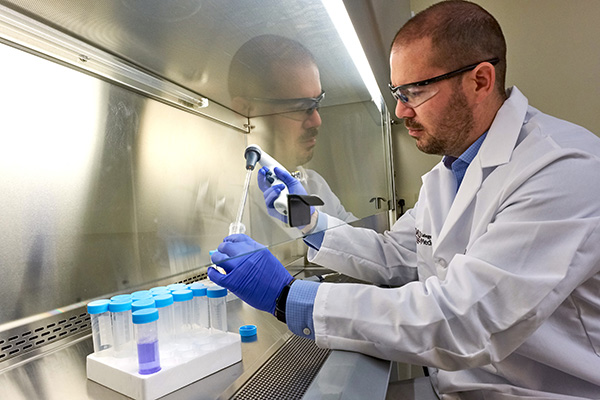Information about research
Introduction
At Central Michigan University, every study that involves human subjects is reviewed by the Institutional Review Board (IRB) before it is allowed to begin. The IRB considers the risks to subjects, the anticipated benefits to subjects and/or others, the importance of the knowledge that may be gained, the recruitment procedures, and the informed consent process that will be used.
The conduct of human subject research at Central Michigan University (CMU) is guided by three ethical principles:
- Respect for persons, which is ensured by obtaining informed consent, consideration of privacy, confidentiality, and additional protections for vulnerable populations.
- Beneficence, which is assured by ensuring that possible benefits are maximized and possible risks are minimized to all human subjects.
- Justice, which is the equitable selection of subjects.
These principles form the basis of federal regulations and university policy, which specify that:
- Principal Investigators (PIs, project directors) have primary responsibility for the protection of human subjects.
- All members of the research team are expected to conduct research in accordance with approved ways for protecting human subjects.
- Researchers must be educated about the protection of human subjects.
- The Institutional Review Board (IRB) reviews every research study that involves human subjects to determine that the rights and welfare of participants are protected.
- Special protections are required if the human subjects in a proposed study are part of a vulnerable population (e.g., children, pregnant women, prisoners, and persons with cognitive impairments).
Definitions
Belmont Report
This report was developed by the National Commission for the Protection of Human Subjects of Biomedical and Behavioral Research in 1979. It summarizes the basic principles and guidelines that should be considered when analyzing ethical issues that may arise when conducting research with human subjects. The three core principles found in this report are: respect for persons, beneficence, and justice.
Benefit
A desired outcome or state of affairs. An example of this would be a subject enrolls in a study about the impact of salsa dancing on obesity. During the course of the study, the subject learns that salsa dancing helps her lose weight and the researcher potentially benefits in advancing general knowledge about the use of salsa dancing to combat obesity.
Human Subjects
A living individual who consents to participate in research. Most research studies have certain criteria that must be met in order to participate. These criteria are designed to ensure the safety of the subjects, as well as to ensure the usefulness of the research. Some studies have very broad criteria; for example, a person must be over 18. Others studies have much more strict criteria for participating; for example, you must have a certain disease.
Children, pregnant women, prisoners, and persons with cognitive impairments can participate in research studies, but they are considered "vulnerable populations." The US Government and Central Michigan University have put in place special procedures to protect persons in these groups.
Informed Consent
A process used by researchers to obtain permission from persons to participate in research. Individuals who provide this consent must be legally competent and possess decision-making capacity.
IRB (Institutional Review Board)
A committee that reviews and oversees human subjects research. IRBs include members of various backgrounds and disciplines, both scientific and non-scientific. At least one member of the committee is unaffiliated with the institution. Central Michigan University's IRB is composed of faculty, staff, and community members.
Research
An attempt to develop new knowledge or to expand upon existing knowledge. Some other words that describe research are clinical trial, protocol, survey, or experiment. Studies can involve a wide variety of procedures, ranging from filling out surveys and questionnaires to using experimental devices. Some studies last only a few minutes, while others last for several years.
Researcher or Investigator
An individual who attempts to develop new knowledge or expand upon existing knowledge. Researchers often rely on a research team to support them in their day-to-day studies.
Risk
The possibility that a research subject may be harmed during participation in a research study.
Sponsor
A person or an organization that provides support for a research project. Sponsorship may be in the form of money, clothing or equipment, for example.
Research at CMU
CMU faculty and students conduct a wide variety of research in the social and behavioral sciences; education from pre-school to post-graduate levels; and sciences. CMU physicians conduct medical research at our clinical campus in Saginaw, Michigan, often in collaboration with Covenant Medical Center.
Participation in research
Central Michigan University advertises research studies in many ways, such as through local newspapers, radio, and postings on bulletin boards. Individuals who are interested in medical research about a specific disease or condition may also speak with their doctor or therapist about research studies for which they may qualify.
Persons who are interested in studies involving specific diseases may begin by searching the following sites:
Resources
Background and Educational Materials on Human Research
Decision Chart Tools
Children in Research
Foust Hall 104 cmuirb@cmich.edu
